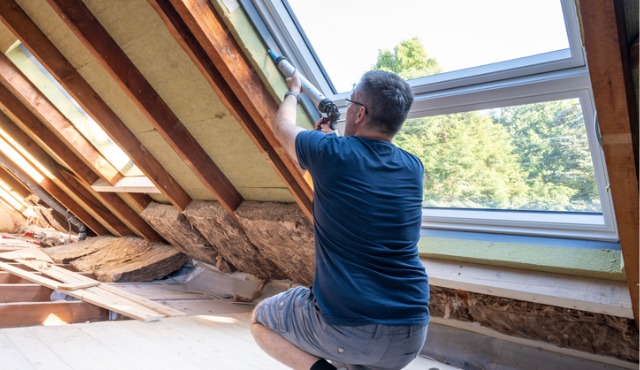By Emma Sturgis
It's no secret that insulation is important. A good insulation system can help regulate the temperature in your home, making it more comfortable for you and your family. It can also save you money on your energy bills. But what if you've just moved into a new home and the insulation isn't up to par? Here are five ways to improve insulation in your home after moving in.
Check for Air Leaks
One of the first things you should do after moving into a new home is check for air leaks. Even the smallest of gaps can let in outside air, which can make your home harder to heat and cool. To check for air leaks, simply light a candle and hold it near doors, windows, outlets and other potential openings. If the flame flickers, then there's an air leak. Once you've found the leaks, seal them with weatherstripping or caulk.
Add Insulation to Attics and Basements
Adding insulation to attics and basements is a great way to improve the overall insulation of your home. Attics and basements are typically two of the least insulated areas in a home, so adding extra insulation here can make a big difference. When adding insulation to these areas, be sure to use materials that are specifically designed for attics and basements (such as foam insulation boards). This will ensure that your home is properly protected from heat loss.
Upgrade Your Windows and Doors
If your home has old windows and doors, then it's time for an upgrade. Older windows and doors tend to be drafty, letting in outside air and making it harder to regulate the temperature in your home. Replacing old windows and doors with new ones can help improve the insulation of your home significantly. Be sure to choose energy-efficient windows and doors to maximize the savings on your energy bill.
Install Window Film
Window film is a clear film that can be applied to windows in order to improve their insulating properties. This film works by reflecting heat away from the window, making it less likely for heat to enter your home during summer months. Additionally, window film can also help keep heat inside your home during winter months, further improving the efficiency of your windows.
Use Curtains or Blinds
Curtains and blinds are not only aesthetically pleasing; they can also help improve the insulation of your home. Thick curtains or blinds can block out outside light and heat, making it easier to regulate the temperature in your home. When choosing curtains or blinds, be sure to select ones that are made from insulating materials such as polyester or cotton-blend fabrics.
Improving the insulation in your home doesn't have to be difficult or expensive; there are plenty of easy and affordable ways to do it! By following the tips above, you'll be able to make your new home more comfortable while also saving money on your energy bills.
 Emma Sturgis is a freelance writer based out of Boston, Massachusetts. She writes most often on health and education. When not writing, she enjoys reading and watching film noir. Say hi on Twitter @EmmaSturgis2
Emma Sturgis is a freelance writer based out of Boston, Massachusetts. She writes most often on health and education. When not writing, she enjoys reading and watching film noir. Say hi on Twitter @EmmaSturgis2








